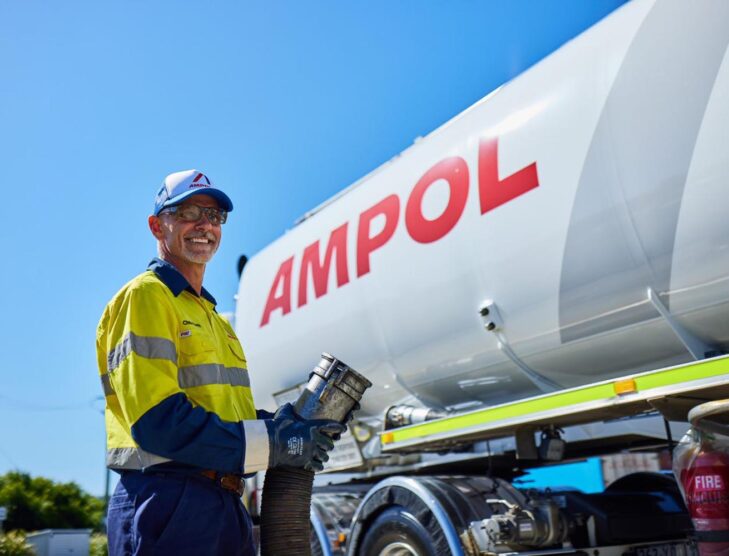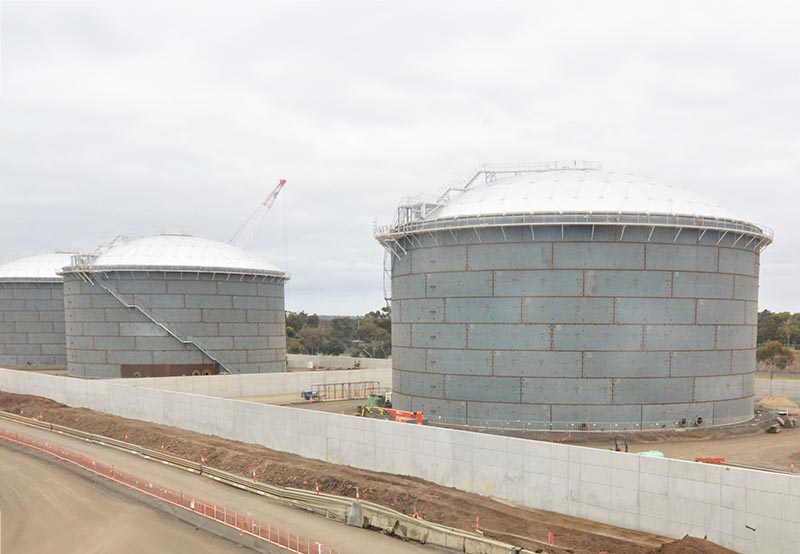
Australia advances towards a renewable diesel fuel standard
Australia is actively working towards establishing a new fuel quality standard for renewable diesel, marking a significant step in its journey towards sustainable energy and emissions reduction. The focus on renewable diesel reflects the country’s commitment to decarbonising sectors that are challenging to transition away from fossil fuels.
The country has long been reliant on fossil fuels as a primary energy source, playing a crucial role in the nation’s economic advancement. According to the government, Australia’s fuel consumption surpassed 50 billion litres (13.2 billion US gallons) in 2022. This dependence has faced growing scrutiny due to the environmental consequences of burning fossil fuels.
Diesel is a key contributor to the nation’s energy needs, constituting 60% of fuel consumption in 2022. It is a more significant energy source than electricity, given its widespread use in the freight transport, mining, construction and agricultural sectors. Australia faces the challenge of harmonising the economic advantages of its fossil fuel industry with the imperative to curtail carbon emissions and transition towards renewable energy alternatives—particularly addressing greenhouse gas (GHG) emissions stemming from diesel combustion.
Replacing diesel is no simple task. While electric and hydrogen-powered vehicles offer some relief in emissions, certain sectors such as long-haul trucks, trains, and industrial equipment lack commercially available alternatives to diesel. Diesel will remain a critical component in Australia’s energy mix for the coming decades.
There is growing interest in renewable diesel as an alternative to mineral diesel due to its lower GHG emissions profile. Renewable diesel is produced exclusively from renewable sources and comprises simple chemical compounds called paraffins. Although not identical to mineral diesel, the renewable fuel possesses comparable chemical properties and behaves similarly when combusted in an engine. The physical and chemical resemblance allows it to be used as a drop in fuel for many diesel engines. In addition to its low-carbon characteristics, renewable diesel contains almost no sulphur or aromatics.
The key difference in GHG emissions between renewable diesel and mineral diesel lies in their lifecycle emissions. Renewable diesel’s lifecycle emissions can be up to 70-90% lower than those of mineral diesel, depending on the feedstock and production process used. This reduction is largely because the carbon emitted during the combustion of renewable diesel is offset by the carbon absorbed during the growth of its biomass feedstock, making it a more sustainable option in terms of GHG emissions.
Biodiesel and renewable diesel are both made from biogenic sources. However, biodiesel is chemically quite different to mineral diesel—limiting the blend ratios that can be employed due to impacts on engine operability. As a direct substitute, renewable diesel has greater potential for widespread use.
Australia’s Department of Climate Change, Energy, the Environment and Water is undertaking a review of the Fuel Quality Standards (FQS), to enable the local supply of renewable diesel. The Fuel Quality Standards Act 2000 (FQS Act) and Fuel Quality Standards Regulation 2019 control any fuel sold, exchanged or gifted in Australia. Standards apply Australia-wide, although states and territories can develop their own standards on top of nationwide mandates.
On November 24, 2023, the department published a consultation paper on Enabling supply of renewable diesel in Australia. The government is seeking feedback from stakeholders on options to incorporate renewable diesel into the country’s FQS. Consultation is the first step to fostering the consistent import, production and distribution of high-quality renewable diesel. The consultation period closed on February 2, 2024, with confidential submissions to be completed via the department’s Consultation Hub.
Neat or blended renewable diesel can already be legally supplied in Australia. However, the Australian mineral diesel standards specify a minimum and maximum density parameter. Neat and higher renewable diesel blends require separate approval under section 13 of the FQS Act, as they do not meet minimum density requirements in the diesel standard. Approvals are time-limited, requiring regular renewals. The consultation paper highlighted the growing interest in renewable diesel, with four such approvals in 2022.
Proposed changes to the FQS would remove the requirement for time-limited approvals, sending a clear market signal on the importance of renewable diesel in Australia.
The paper offered two potential options for incorporating renewable diesel in the FQS; an amendment to the existing diesel FQS to include paraffinic diesel parameters or the creation of a new standalone FQS for paraffinic diesel. Administratively, an amendment is the simplest option, as it requires only a change to the minimum density parameters of the current diesel standard. However, concerns have been raised that it would not mandate the quality of 100% paraffinic diesel. The paper also suggests it would require the development of an information standard with specific labelling instructions.
During the initial engagement, before the completion of the consultation paper, industry groups expressed support for a separate FQS tailored specifically for renewable diesel. Such an approach mirrors the regulatory framework in Europe where there is a standalone paraffinic diesel standard—EN 15940. Renewable diesel that is currently imported and supplied in Australia under temporary approvals aligns with the European standard. The Renewable Energy Directive (RED II) in Europe requires 50-65% GHG savings from renewable diesel used in the transport sector.
The department is proposing to use the European specifications as a benchmark. However, the consultation paper noted some differences between EN 15940 and Australian requirements. For example, EN 15940 allows both mineral and paraffinic diesel to contain up to 7% biodiesel by volume. In Australia, the limit is 5%. Imported renewable diesel may also have a lower flashpoint than that of mineral diesel in Australia.
Indicative specifications for a paraffinic diesel standard were included in Appendix C of the consultation paper. Although it may seem that a decision has already been made on the amendment vs. new debate, the department stressed that the consultation paper does not constitute a draft standard and the inclusion of the indicative specifications for a paraffinic diesel standard is merely to elicit comments.

Regulation of paraffinic diesel in Australia will follow an origin-neutral approach, with the definitions for “renewable diesel” and “synthetic diesel” removed. An origin-neutral approach to fuel regulation means that the rules and standards applied to paraffinic diesel fuels do not differentiate based on the source of the fuel. Whether the diesel is produced from biomass (making it renewable) or from gas-to-liquid (GTL) processes (making it synthetic), the same regulatory standards apply. This approach focuses on the chemical and physical properties of the fuel itself rather than on how or from what it was made.
Rather than a renewable diesel standard, the indicative specifications are designed to enable paraffinic diesel supply. The term paraffinic diesel allows the FQS to regulate renewable diesel and other paraffinic diesel alternatives (such as synthetic diesel) from non-renewable sources.
HIF Global has begun the development and approval process for Australia’s first large-scale, carbon-neutral eFuels manufacturing facility. The facility is planned to be located near the town of Burnie in Tasmania. The HIF Tasmania eFuels facility is expected to start producing carbon-neutral eFuels in 2028. At full operations, the HIF Tasmania facility is expected to produce up to 100 million litres per year of carbon neutral eFuels, HIF Asia Pacific CEO Ignacio Hernandez said when the project was announced in July 2022.
Concerns were acknowledged that the paraffinic diesel standard may preclude some future types of renewable diesel that are not aligned with the paraffinic diesel definition. The department indicated it would re-examine the definition of paraffinic diesel if this situation arose.
Following the end of the consultation period, and completion of any further stakeholder engagement, the department will develop a draft FQS for consideration by the Fuel Standards Consultative Committee (FSCC). The FSCC plays a crucial role in advising the Minister for Energy and Emissions Reduction on matters related to fuel quality standards. The committee is established under the Fuel Quality Standards Act 2000, and its composition is designed to represent a broad range of stakeholders from the fuel industry, motor vehicle and engine manufacturers, consumer groups, environmental groups, and health and scientific experts.







